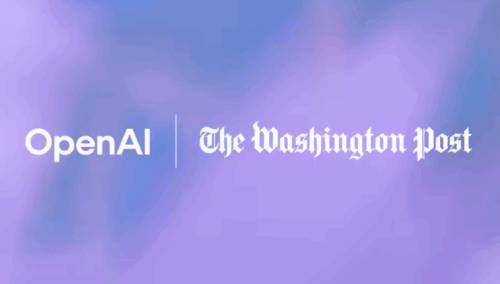
A Major Move in Digital Journalism
The Washington Post has entered into a strategic partnership with OpenAI, the makers of ChatGPT, to bring its journalism directly to the chatbot’s massive user base of over 500 million weekly users. Though the price of this deal has not been disclosed, its impact could reshape how verified news reaches people online.
News at Your Fingertips
This collaboration will allow ChatGPT to show quotes, summaries, and links from original Washington Post reporting when users ask relevant questions. Whether it’s politics, global news, or tech trends, readers can now get snippets of The Post’s reporting inside ChatGPT — always with clear links back to full articles.
It’s a shift that aims to meet audiences where they already are — in AI tools like ChatGPT — instead of expecting them to visit traditional websites. As AI becomes a go-to information tool, The Post wants its trustworthy journalism to be part of the conversation.
Why It Matters ?
In an age of fast-moving news and constant misinformation, this partnership could help people find more accurate stories faster. Timely, fact-checked content from a newsroom like The Post could stand out from AI’s sometimes unclear or outdated answers.
This is not The Washington Post’s first step into AI. Over the past year, it has launched projects like Ask The Post AI and Climate Answers, and developed newsroom tools like Haystacker to help reporters sift through large amounts of information. The Post says it remains LLM-agnostic — meaning it’s not tied to one AI company — but is committed to building useful tools with the best available technology.
Not All Newsrooms Are On Board
While OpenAI now works with more than 20 news publishers globally, not everyone is supportive. The New York Times, for example, is suing OpenAI over claims of copyright misuse. This contrast shows how divided media companies still are when it comes to generative AI.
There are also concerns around transparency. Financial terms of the Washington Post-OpenAI deal haven’t been shared. OpenAI has also not commented publicly on the agreement, which leaves questions about licensing models and editorial control unanswered.
Could This Change How We Read News?
Possibly. With AI acting more like a search engine and guide, this partnership could shift how people consume news. If users get useful summaries and links in their chats, they might skip traditional news platforms. While that boosts visibility, it could also reduce direct traffic and subscriptions for outlets.
Still, this move shows how one of the world’s leading newspapers is adapting. It’s not about replacing journalism with AI, but about using AI to amplify human reporting.
If done right, this collaboration can help ensure that solid journalism isn’t drowned out in a sea of half-true answers.
